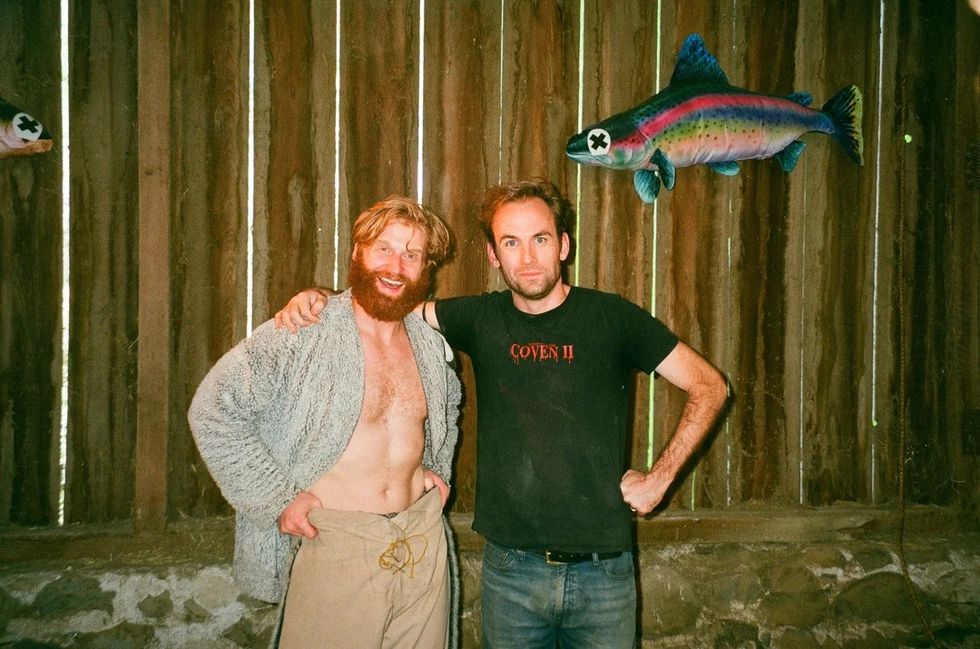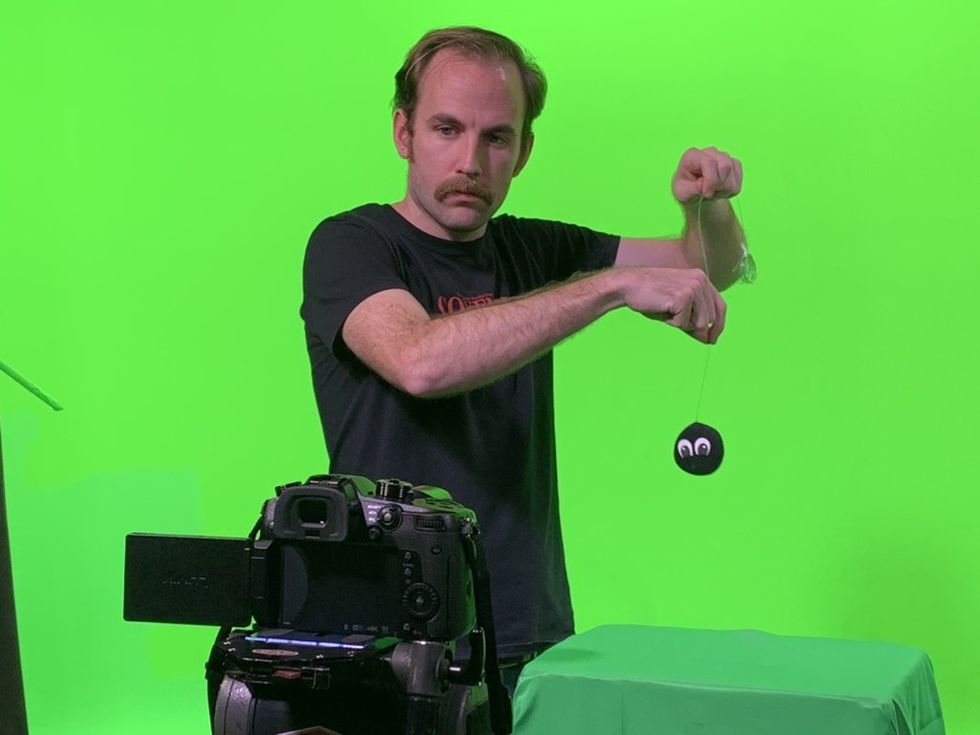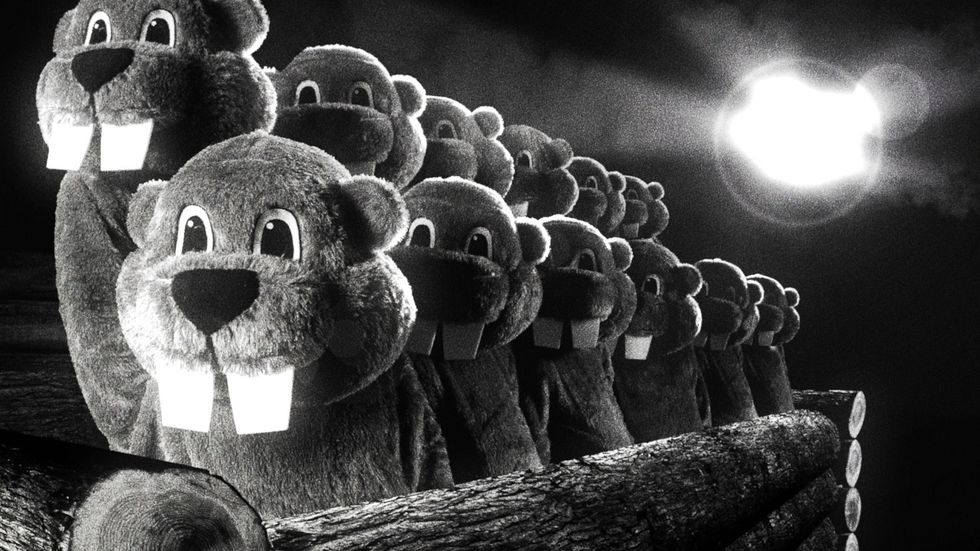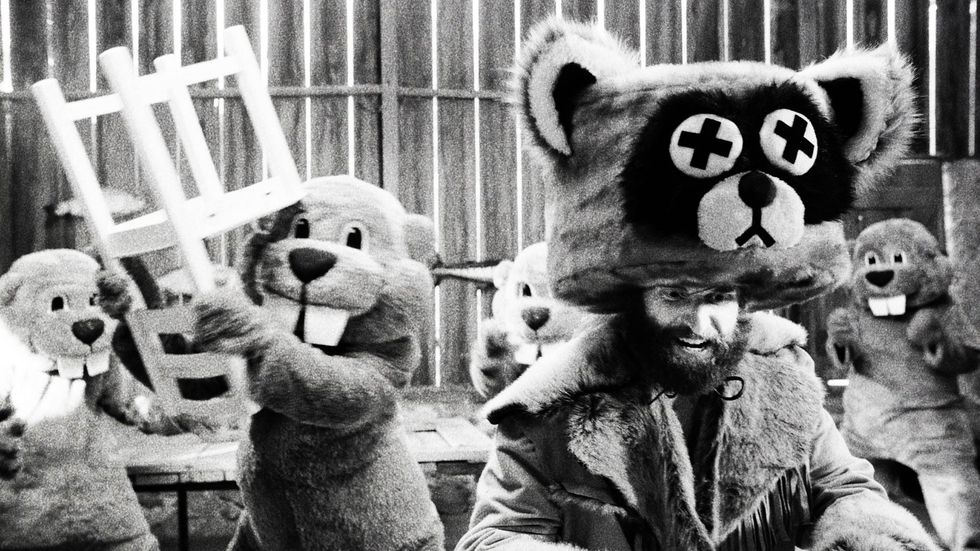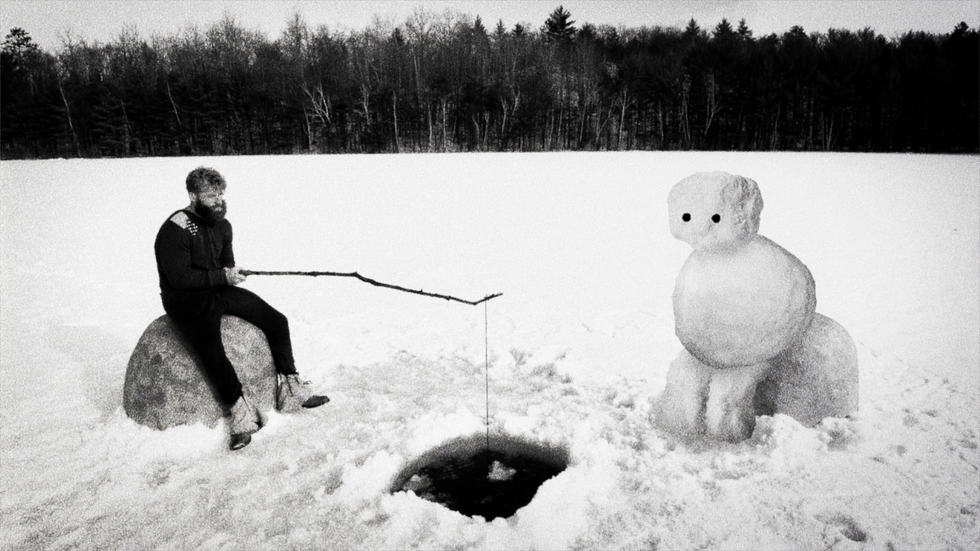Joel Edgerton of 'Midnight Special': Filmmaking 'All Comes Down to Point of View'
At the 2016 SXSW Film Festival, actor Joel Edgerton (Midnight Special, Warrior, Black Mass) shared his thoughts on acting, directing, working with collaborators, building a career, and the craft and business of film in general.
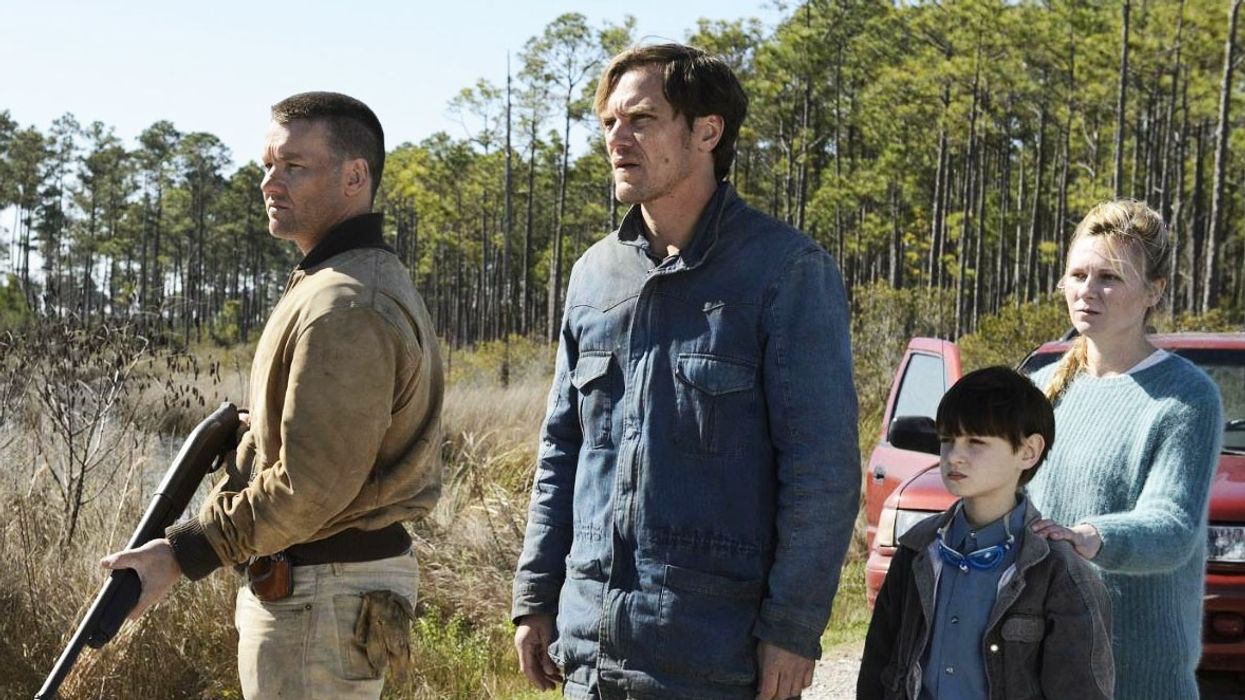
Edgerton, who also wrote and directed 2015's The Gift, currently stars in the sci-fi chase film Midnight Special, the latest from writer-director Jeff Nichols' (Mud, Take Shelter). For his first studio picture, Nichols took Midnight Special straight to Warner Bros, and the result is a thoroughly enjoyable, thinking-man's ode to Spielberg (whether he wants it called that or not) with one of the more effective—and simultaneously confounding—cinematic reveals in recent memory. Edgerton plays "a guy who's there to serve and protect this family," as played by Michael Shannon, Kirsten Dunst, and 13-year-old Jaeden Lieberher.
Edgerton had just gotten into Austin for the festival after shooting an all-night basketball scene for his brother Nash Egerton’s forthcoming feature American Express (“in an extreme case of nepotism”). He differentiated his fatigue from those in the audience (whose lack of sleep was because they “were being naughty”). Video of the full conversation, hosted by Wired editor-in-chief Scott Dadich, is here, or continue reading for the notes I took while attending the panel:
How Midnight Special tells character's backstories without being overly expository
Edgerton has a supporting role in Midnight Special, playing "a guy who's there to serve and protect this family." The challenge of telling a character's backstory and the way Nichols dealt with it stood out to Edgerton: "What's great about Jeff is [he doesn't do this]: when you read a script and your character gets to the point where he's like, 'when I was a child and my dad used to take me camping...' One good way of defining character is by present action rather than, 'let's tell you stuff that happened as a kid.' There is one of those speeches for [my character Lucas] in Midnight Special, but Jeff said, 'I don't want two characters to talk about something they both already know, because that reeks of exposition.' But if [our characters] just met and I want you to learn something about me, the byproduct of that is exposition for the audience. You need to be smart about how your parcel that out."
"I’m more interested in true movie lovers loving what I do than I am in appealing to the masses."
How to choose projects (with integrity)
"In the early days, I just sort of ate what was on my plate," Edgerton admitted. "It wasn’t a choice until later. Some of it [involves] avoiding the wrong things."
But in the end, Edgerton explained, it's all about that fateful concoction of the right script and the right collaborative team. "You start to learn about the ingredients of what makes a good film," he said. "And you try to not be drawn into the intoxicating elements of money and fame."
For Edgerton, personal success amounts to a sense of integrity. "I’m more interested in true movie lovers loving what I do than I am in appealing to the masses," he said. "I know so many good actors that aren’t considered good because of the kind of TV show they’re in… Actors [either] take the glory or they wear the shame of something."
"I want to sit across from another actor and feel like I’m doing something real, rather than if this whole room were a green screen."
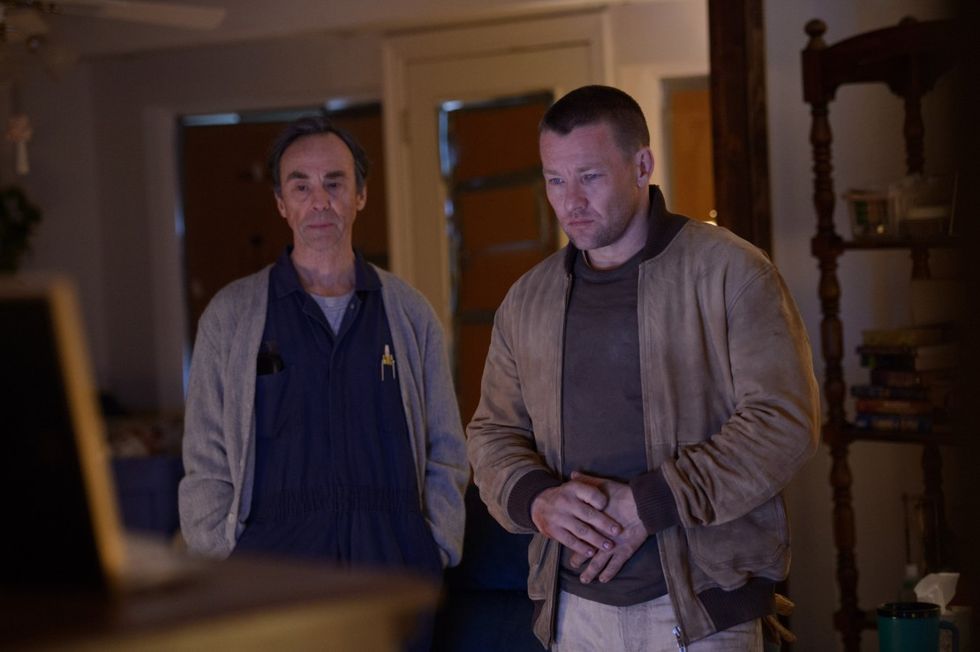
When choosing a project, Edgerton is drawn to authenticity of character. "I’m more interested in character first," he said. "And it’s a selfish thing: I want to sit across from another actor and feel like I’m doing something real, rather than if this whole room were a green screen and I was trying to react to a tennis ball flying around. I love tennis, I'm not scared of tennis balls."
But striving for authenticity can take a lot out of an actor. "Often, we’re finishing something on a Friday and then starting another thing on Monday," Edgerton said. "I think it’s important to take time between experiences and reset your brain."
How financiers don't recognize the value of point-of-view
Edgerton believes financiers have the wrong idea about horror movies: "I think people [who finance] usually say, 'It’s better if we have a bunch of really good-looking people who die one by one in creative ways,'" Edgerton said, "rather than finding a really human idea and planting that in ground and growing it in a way that’s disturbing." For Edgerton, that all comes down to point of view: "my big topic in filmmaking is point of view. Over the years of reading screenplays, I found myself thinking, 'This person doesn’t know the POV.'"
"One of the things on The Gift is we never go into Gordo’s POV," he continued. According to Edgerton, the character of Gordo is very similar to the character of Malevolio in Shakespeare'sTwelfth Night; both men seem impenetrable and unsympathetic until you discover their underlying human motivations. "Malevio is a character who you hate and you hate, but then you find out he’s in love with the queen, and once you do, that’s the missing piece of the puzzle," he said. "And then you’re like, 'Oh, I get him.'"
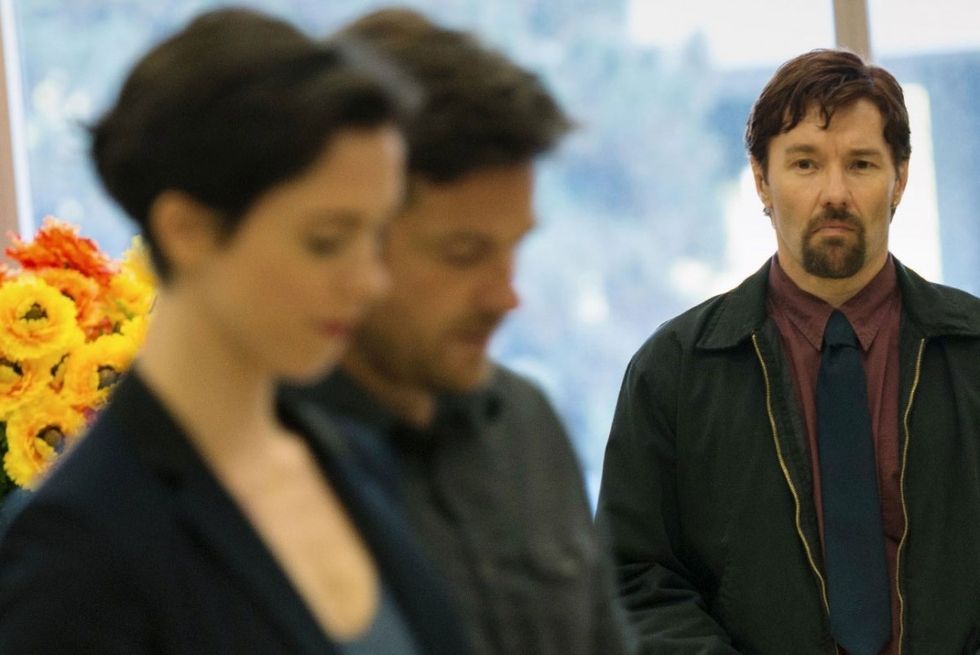
"As a director, before you impose your will on [an actor], see what they have to offer."
How good actors solve directors' problems
"Good actors solve so many problems for [directors]," Edgerton shared. "As a director, before you impose your will on [an actor], see what they have to offer. And if you don’t agree with them, then impose your will." After all, once an actor begins to embody a character, the actor has to be able to take ownership. "I believe an actor at a certain point should become a better keeper of their character than the director or writer," he said.
Why you should make shorts
"I haven't made a short since I made "Monkeys," which was a short film where I just wanted to explore working with the Canon 5D," said Edgerton.
"[On commercials] I get to work with a new piece of equipment or try a new cinematographer; that format lets you try new things. But short films are a great way of learning how to work and collaborate with people, and how to go from start to finish without biting off an hour and a half of material."
How True Detective changed his opinion of TV
"I’m interested in [TV] more than I ever was before," said Edgerton. "Cable networks were a five-month contract; the other alternative was you signed a 7-year contract. When my eyes opened was when Cary Fukunaga did True Detective. To be honest, the writing you see on TV these days is so much better than what you see in many screenplays. I watched 10 episodes of Fargo Season 2 in one day (I was a bit hungover). There is excellent TV. Character is so much richer and there’s not so much pressure to tie everything in a bow in an hour and a half. I’m definitely interested in that."
"You’re not a doctor unless you work with patients. You’re not a filmmaker unless you make films."
Advice for success: "elasticize your brain" and "make something for no money with your friends"
The penny-pinching filmmaker is more the rule than the exception, Edgerton said. "The general rule seems to be: if you’re ultra creative, your pockets are empty.... There are people who mortgage their houses, man, and really take a gamble. There are people who do crowdfunding, which is really interesting. Or you go rogue and you make something for no money with your friends."
"Really elasticize your brain," Edgerton offered. "Think: what’s something I can do for very little? Or be patient and do your job, and write a great screenplay and go through the usual channels." But there's a caveat: "The usual channels don’t seem to work because you hit a brick wall. You have to understand: if you haven’t got a chalk mark on the board, they’re not going to take that risk. You have to troop through the forest [yourself], and if you do, people will notice you.
"The equipment is cheaper, better, faster, there’s no excuse for not making stuff," said Edgerton. "You’re not a doctor unless you work with patients. You’re not a filmmaker unless you make films. Why sit around and say, 'I’d like to do something?' You’ve just gotta do it. You might fail at first, but your failures are what are going to allow you to move onto success."
Edgerton is no stranger to failure himself. "I wrote a screenplay that was terrible and will never see the light of day because it had no spine," he said. "So I started reading screenplay books. In the days prior to YouTube, reading books and talking to people [was] our university."
For more, see our complete coverage of the 2016 SXSW Film Festival. Listen to our podcasts from SXSW (or subscribe in iTunes):
No Film School's coverage of the 2016 SXSW Film Festival is sponsored by SongFreedom.

